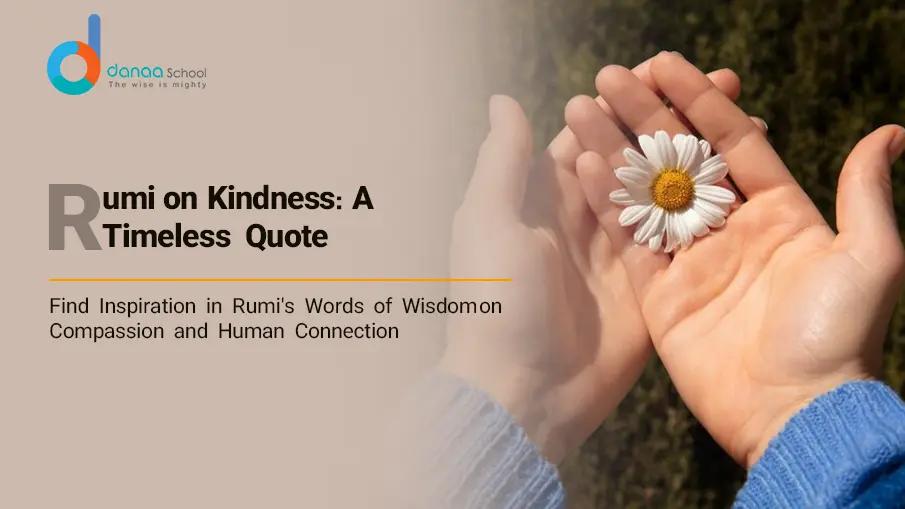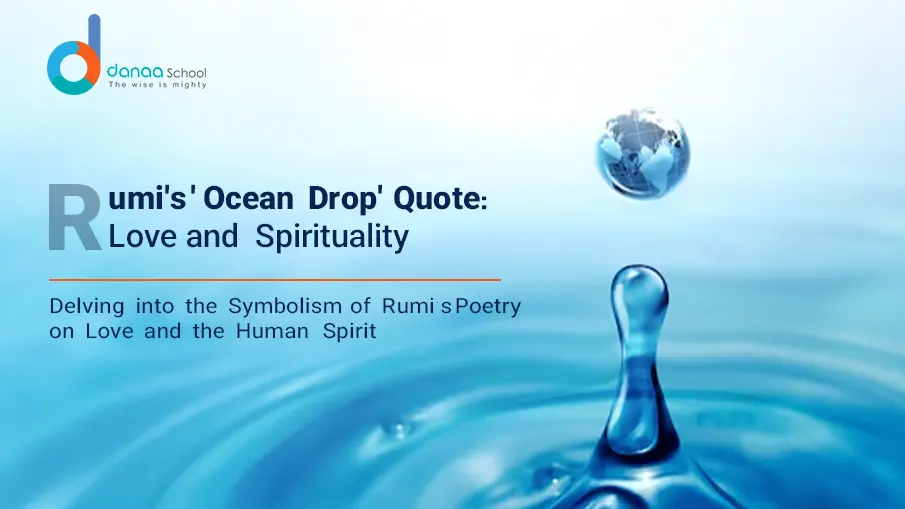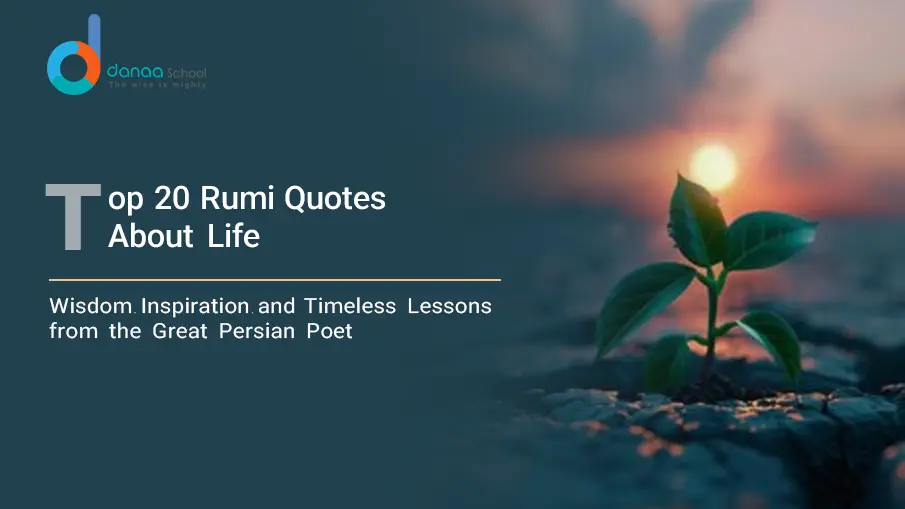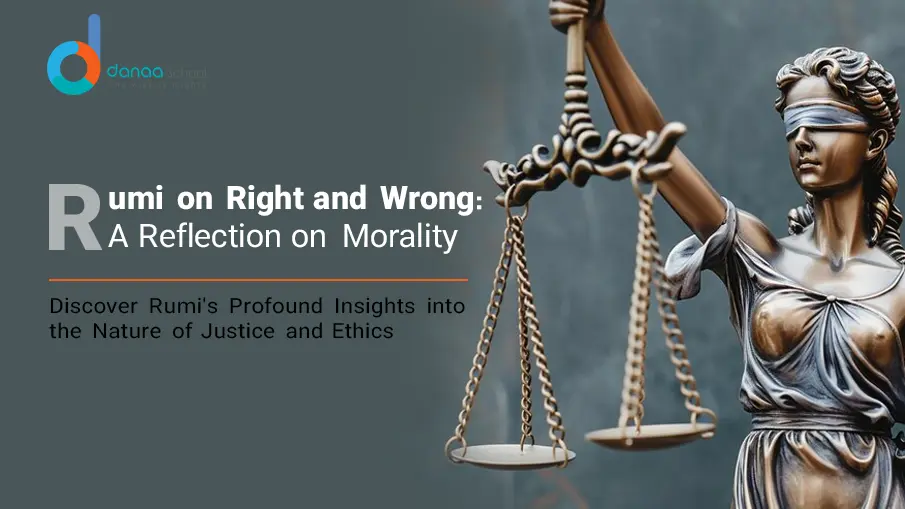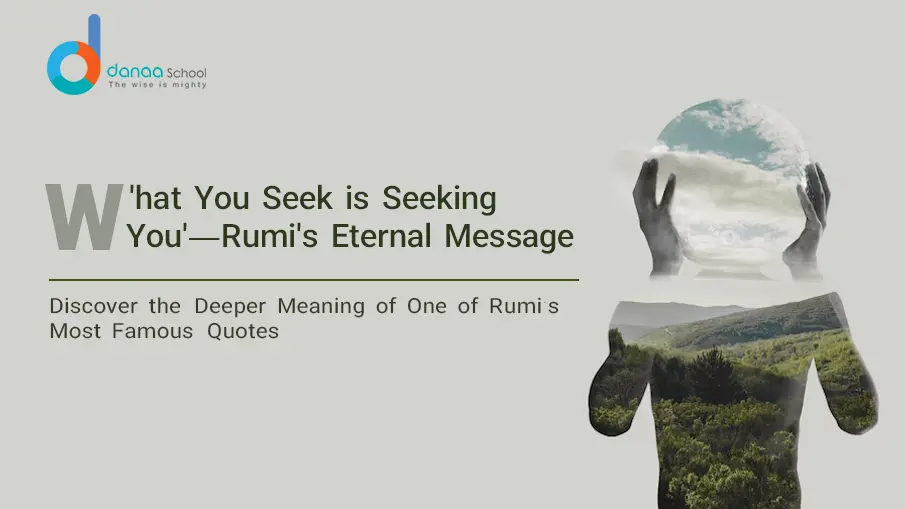Rumi wound with its meaning
Rumi, the 13th-century Persian poet and mystic, continues to captivate audiences worldwide with his profound insights and timeless wisdom. His legacy extends far beyond time and geography, leaving an indelible mark on humanity for centuries. In this article we’ll explore Rumi’s quote about wound with its meaning and interpretation.
Rumi’s Cultural Influence
Rumi’s poetry remains remarkably relevant despite the passage of centuries, resonating with individuals from diverse cultural backgrounds. His teachings have transcended borders, inspiring countless scholars, artists, and spiritual seekers around the globe. Rumi’s cultural influence has contributed to a greater appreciation for Persian literature and Sufi mysticism, fostering intercultural dialogue and understanding.
Rumi’s Spiritual Journey
At the heart of Rumi’s philosophy is his deep spiritual quest for truth and enlightenment. Influenced by Sufi mysticism and guided by his spiritual mentor, Shams-e Tabrizi, Rumi started on a transformative journey of self-discovery, seeking union with the divine. His spiritual insights continue to guide and inspire individuals toward self-realization and spiritual fulfillment.
Rumi’s Literary Works
Rumi’s literary oeuvre comprises a vast collection of poems, letters, and prose, collectively known as the “Masnavi” and the “Divan-e Shams-e Tabrizi.” These works explore many themes, including love, spirituality, and the human experience. Rumi’s poetic genius lies in his ability to convey complex philosophical concepts eloquently and make his poetry accessible to readers of all ages and backgrounds.
The Symbolic Interpretation of Wounds and Light
In Rumi’s philosophy, wounds symbolize the trials and tribulations of human existence, the inevitable hardships that shape our journey through life. Rather than viewing wounds as sources of despair, Rumi invites us to perceive them as opportunities for growth and transformation. By embracing our wounds with courage and resilience, we open ourselves to the possibility of profound healing and self-discovery.
Rumi Wound Light as Gateways to Transformation
Rumi says our wounds serve as portals for inner exploration and self-realization. It is through our struggles and sufferings that we acquire wisdom and insight, transcend our limitations, and ascend to higher states of consciousness. We pave the way for profound healing and spiritual growth by embracing our vulnerabilities and acknowledging our imperfections.
Illumination Through Adversity
The metaphor of light entering through the wound signifies the transformative power of adversity. Amid darkness and despair, Rumi reminds us that light—symbolizing knowledge, wisdom, and enlightenment—can penetrate even the deepest wounds, illuminating our path to spiritual awakening. By embracing our wounds as integral aspects of our journey, we create space for profound healing and growth, allowing the light of wisdom and insight to permeate our souls.
Exploring the concept of healing in Rumi’s philosophy
Healing as Inner Transformation
For Rumi, true healing extends beyond the physical realm, encompassing emotional, psychological, and spiritual dimensions. It is a process of inner transformation in which we confront our wounds with courage and compassion, embracing them as catalysts for growth and self-discovery. By embracing our vulnerabilities and acknowledging our imperfections, we pave the way for profound healing and spiritual growth.
The Role of Acceptance and Resilience
Rumi’s teachings emphasize the importance of acceptance and resilience in adversity. By embracing our wounds with grace and dignity, we cultivate inner strength and resilience, enabling us to navigate life’s challenges with courage and conviction. Rather than allowing our wounds to define us, Rumi encourages us to view them as opportunities for growth and transformation, paving the way for profound healing and self-discovery.
Embracing Vulnerability
Far from being signs of weakness, Rumi encourages us to embrace our vulnerabilities as sources of strength and authenticity. In acknowledging our wounds and vulnerabilities, we open ourselves to the possibility of profound healing and self-discovery. By embracing our imperfections with humility and compassion, we create space for growth and transformation, allowing the light of wisdom and insight to permeate our souls.
Rumi’s Quote about Wound with Its Meaning and Interpretation
Deciphering Rumi’s Metaphor
“The wound is where the light enters” encapsulates Rumi’s profound understanding of human suffering and resilience. It invites us to reframe our perception of wounds, viewing them not as pain sources but as gateways to enlightenment and spiritual growth. By embracing our wounds with courage and resilience, we create space for profound healing and self-discovery, allowing the light of wisdom and insight to permeate our souls.
The Interplay Between Darkness and Light
In Rumi’s philosophy, darkness symbolizes ignorance, suffering, and spiritual blindness, while light represents knowledge, wisdom, and divine illumination. The quote underscores the symbiotic relationship between darkness and light, suggesting that one cannot exist without another. By embracing our wounds and vulnerabilities with grace and humility, we create space for profound healing and growth, allowing the light of wisdom and insight to permeate our souls.
Finding Meaning in Suffering
We find meaning in suffering and adversity by embracing our wounds and acknowledging our vulnerabilities. Through the cracks of our brokenness, the light of wisdom and insight permeates, guiding us toward wholeness and spiritual fulfillment. Rather than allowing our wounds to define us, Rumi encourages us to view them as opportunities for growth and transformation, paving the way for profound healing and self-discovery.
Rumi’s Most Famous Quotes and Their Significance
The wound is the place where the light enters” remains one of Rumi’s most iconic statements; his repertoire is vast and diverse. His verses explore themes of love, unity, and spiritual enlightenment, inspiring readers to seek meaning and purpose in life. Rumi’s poetry embodies a profound longing for spiritual enlightenment and union with the divine, inviting readers to self-discovery and self-realization.
Themes of Love and Unity
Central to Rumi’s teachings is the concept of love as a transformative force that transcends boundaries and unites humanity. His poetry celebrates the universal language of love, inviting individuals to cultivate compassion, empathy, and understanding towards one another. By embracing the wisdom of Rumi’s teachings, we can foster greater harmony and unity in our communities, transcending divisions and fostering a culture of compassion and understanding.
The Quest for Spiritual Enlightenment
Rumi’s poetry embodies a profound longing for spiritual enlightenment and union with the divine. Through his eloquent verses and mystical imagery, he inspires readers to start a journey of self-discovery, seeking truth and transcendence beyond the confines of the material world. By embracing the wisdom of Rumi’s teachings, we can cultivate a deeper spiritual awareness and connection, paving the way for profound healing and self-discovery.
Why Danaa School?
Danaa School is committed to preserving and promoting the rich cultural heritage of Persian poety, including the timeless pems of Rumi. With a curriculum designed to inspire and educate, Danaa School allows students to explore the world of the Persian poetry and discover the profound wisdom and beauty contained within.
Through engaging lessons, interactive activities, and immersive experiences, Danaa School students learn about the legendary Persian poets and develop a deeper appreciation for the cultural heritage that continues to shape their identity and worldview.
Conclusion
In conclusion, Rumi’s quote about wounds and light offers profound insights into the human condition and the nature of suffering. By reframing wounds as gateways to enlightenment and embracing our vulnerabilities with grace, start on a transformative journey of healing and self-discovery. Through the cracks of our brokenness, the light of wisdom and insight permeates, guiding us toward wholeness and spiritual fulfillment.
Are fascinated by Persian literature and Rumi poems and you want to explore the world of Rumi and the beauty hidden within its works. Look no further than Danaa School’s Poetry classes! Enroll now.
FAQs
1. Is Rumi’s quote about wounds and light meant to be taken literally?
– While the quote can be interpreted metaphorically, its essence lies in its deeper philosophical implications rather than its literal meaning.
2. How can we apply Rumi’s teachings daily?
– By cultivating mindfulness, embracing vulnerability, and seeking meaning in adversity, we can integrate Rumi’s wisdom into our journey of growth and self-discovery.
3. What role does spirituality play in Rumi’s philosophy?
– Spirituality is central to Rumi’s philosophy, serving as a guiding force for inner transformation and connection with the divine.
4. Why is Rumi considered one of the greatest poets?
– Rumi’s timeless wisdom, profound insights, and exquisite poetic expression have earned him a revered place in literary and spiritual traditions worldwide.
5. How can Rumi’s teachings help us navigate life’s challenges?
– By embracing the wisdom of Rumi’s teachings, we can find solace, inspiration, and guidance in times of adversity, fostering resilience and inner peace.
6. What is the significance of Rumi’s quote in modern society?
– Rumi’s quote about wounds and light resonates deeply in today’s fast-paced and often tumultuous world. It offers a timeless reminder that our struggles and hardships can catalyze personal growth and spiritual enlightenment, providing solace and inspiration to individuals navigating life’s challenges.
7. How can Rumi’s teachings on healing and transformation be applied in therapeutic practices?
– Therapists and counselors often draw upon Rumi’s insights and poetry to facilitate healing and transformation in their clients. By incorporating acceptance, resilience, and self-discovery themes into therapeutic interventions, practitioners can empower individuals to embrace their wounds with courage and compassion, fostering a deeper sense of inner peace and wholeness.



